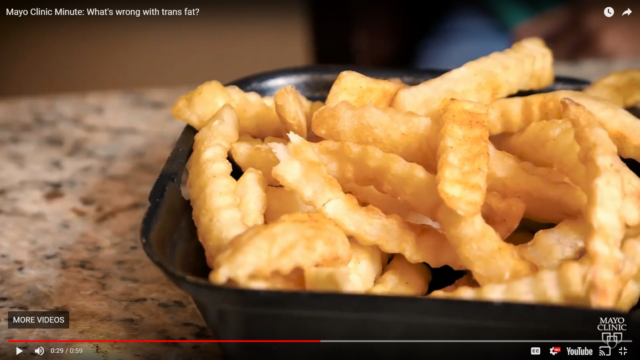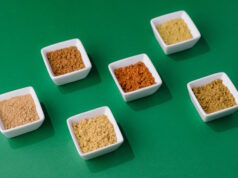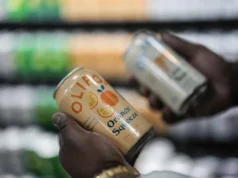
It’s considered by most health experts to be the worst type of fat you can eat. So what’s really wrong with having trans fat in your diet? And what are some healthier alternatives?
Jason Howland explains in this Mayo Clinic Minute.
It’s the type of fat that spells double trouble for your heart.
“Trans fat lowers your HDL [high-density lipoprotein], which is your good cholesterol, and it raises your LDL [low-density lipoprotein], which is your bad cholesterol,” says Anya Guy, a Mayo Clinic registered dietitian nutritionist. “So, all in all, trans fat increases your risk of heart disease.”
Manufactured by adding hydrogen to vegetable oil to make it solid at room temperature, trans fat extends the shelf life of food, such as certain baked goods, chips, refrigerated dough, nondairy creamer, margarine and some fried foods.
Guy says it’s important to read ingredient labels and look for “partially hydrogenated vegetable oil.” When eating out, choose baked or grilled protein options. And instead of those cookies or chips that could be loaded with trans fat …
“Rather than choosing snacks in the packaged aisle, choose carrots and ranch or apples and peanut butter as a snack,” she says.
In the end, your heart will thank you for it.












